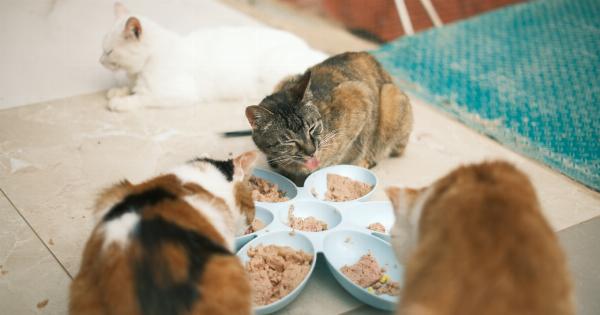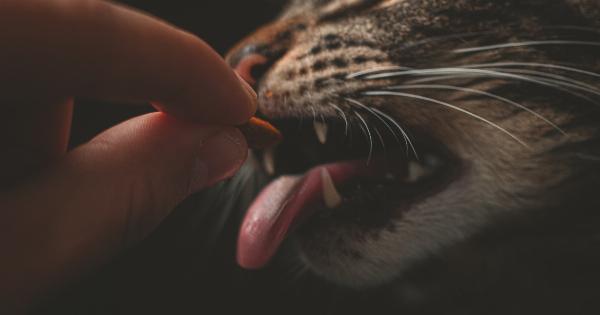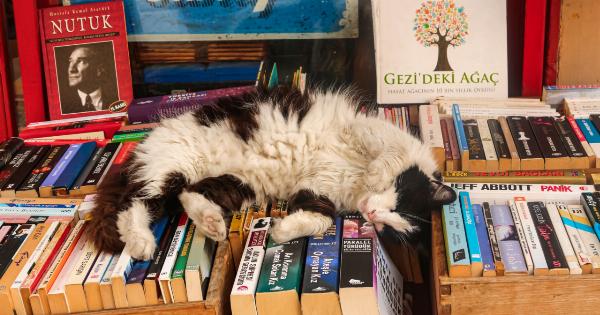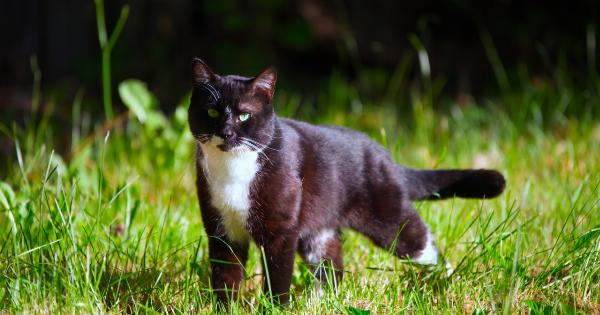Feline viral diseases are a significant concern for cat owners around the world. These diseases can often lead to serious health issues and even death if not properly prevented and managed.
In this article, we will discuss two of the most common feline viral diseases, their prevention methods, and strategies for effective management.
Feline Herpesvirus (FHV)
Feline Herpesvirus, also known as Feline Viral Rhinotracheitis (FVR), is a highly contagious viral infection that affects the respiratory system of cats.
It is spread through direct contact with infected cats or through contaminated objects such as food bowls, litter boxes, and bedding.
To prevent the spread of FHV, it is essential to maintain good hygiene practices. This includes regular handwashing before and after handling cats, especially if they are showing symptoms of respiratory distress.
It is also crucial to keep infected cats separate from healthy ones to minimize transmission.
There is no specific cure for FHV, but supportive care can help manage the symptoms. This may include providing a warm and comfortable environment, ensuring adequate hydration, and offering nutritious food to boost the immune system.
Additionally, regular vaccination against FHV is recommended to reduce the severity and duration of the infection.
Feline Calicivirus (FCV)
Feline Calicivirus is another highly contagious viral infection that affects cats. It primarily causes respiratory symptoms but can also lead to oral ulcerations and joint pain.
FCV is transmitted through direct contact, respiratory droplets, and contaminated objects.
To prevent the spread of FCV, similar hygiene practices to those for FHV should be followed. Additionally, routine vaccination is crucial for preventing and managing the disease.
Vaccines are available that provide protection against various strains of FCV, and regular booster shots should be given accordingly.
Management of FCV involves supportive care to alleviate symptoms. This may include providing soft and palatable food to cats with oral ulcerations, maintaining a clean and stress-free environment, and offering pain relief medication if required.
Regular dental care is also necessary to minimize oral discomfort.
Preventing FHV and FCV Co-Infections
Both FHV and FCV can occur simultaneously, leading to severe respiratory symptoms and complications. Preventing co-infections requires strict adherence to hygiene practices and vigilant monitoring of cats’ health.
In multi-cat households or shelters, isolating newly arrived cats and properly screening them for viral diseases before introducing them to the resident cats is crucial.
Regular cleaning and disinfection of common areas and objects can significantly reduce the risk of transmission.
Vaccination plays a vital role in preventing co-infections as well. Consult with a veterinarian to ensure that your cats are up-to-date on their vaccinations, including both FHV and FCV vaccines.
Early Identification and Treatment
Early identification of feline viral diseases is essential for effective management. Cats showing symptoms such as sneezing, nasal discharge, coughing, ulcerations, or joint pain should receive prompt veterinary attention.
A thorough examination, along with diagnostic tests, can help confirm the presence of viral infections.
Treatment plans may include antiviral medications, antibiotics to prevent secondary bacterial infections, and supportive care to alleviate symptoms.
Cats may require isolation to prevent the spread of the virus, especially in multi-cat households or cattery situations.
Preventing Feline Viral Diseases Through Vaccination
Vaccination is by far the most effective strategy for preventing feline viral diseases. It not only protects individual cats but also helps control the spread of the viruses within the feline population.
Consult with a veterinarian to develop an appropriate vaccination schedule for your cats, considering factors such as their age, health status, and potential exposure risks.
Regular booster shots are necessary to maintain immunity against these viral diseases.
Providing Optimal Nutrition and Hydration
A strong immune system is key to preventing and managing feline viral diseases. Providing cats with a balanced and nutritious diet helps support their immune function.
High-quality cat food formulated with essential nutrients can enhance cats’ overall health and reduce the severity of infections.
Proper hydration is also vital for cats’ well-being. Ensure that fresh water is readily available at all times, and if necessary, encourage cats to drink by using drinking fountains or adding wet food to their diet.
Creating a Low-Stress Environment
Stress can weaken a cat’s immune system, making them more susceptible to viral infections. Creating a low-stress environment is, therefore, crucial for their overall health.
Provide cats with a safe and comfortable space where they can retreat and relax.
Offering environmental enrichment, such as toys, scratching posts, and interactive playtime, helps alleviate boredom and stress. Minimize exposure to loud noises, sudden changes, and crowded spaces to ensure a stress-free environment for your cats.
Socialization and Positive Human-Cat Interactions
While preventing direct contact with infected cats is important, it is equally crucial to provide positive interactions and socialization for your feline companions.
Maintaining a strong bond with your cats can enhance their overall well-being and strengthen their immune system.
Regular grooming sessions, playtime, and gentle handling can help reduce stress and build trust. It is important to remember that positive human-cat interactions can have a significant impact on a cat’s emotional and physical health.
Conclusion
Feline viral diseases are a serious concern for cat owners, but with proper prevention and management strategies, their impact can be minimized.
By following strict hygiene practices, ensuring regular vaccination, providing optimal nutrition and hydration, creating a low-stress environment, and promoting positive human-cat interactions, you can take significant steps towards preventing and managing these common feline viral diseases.






























